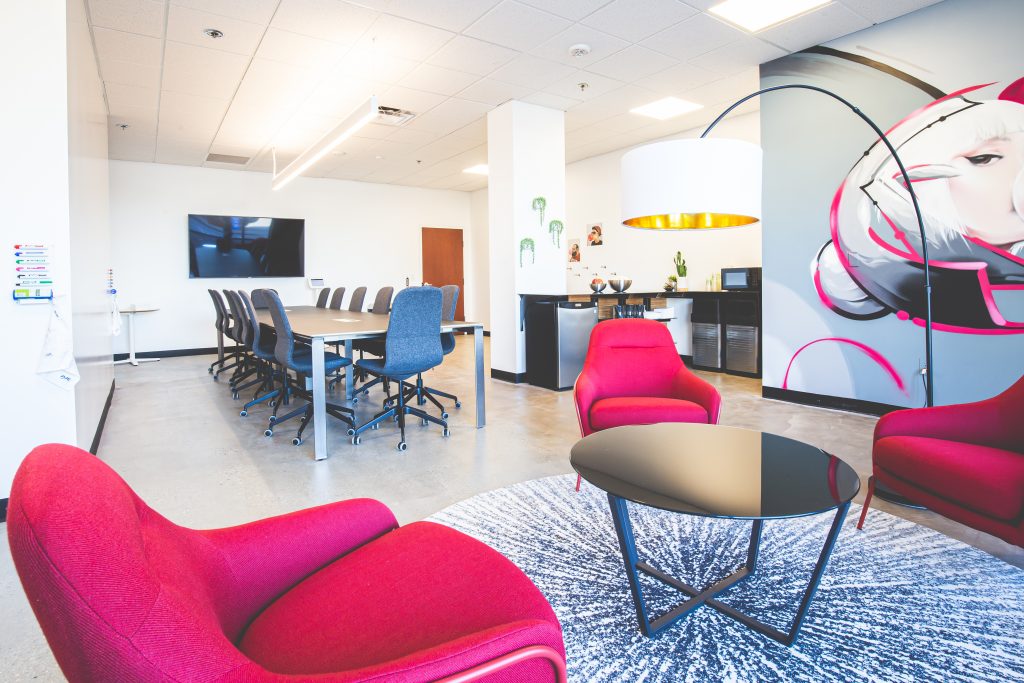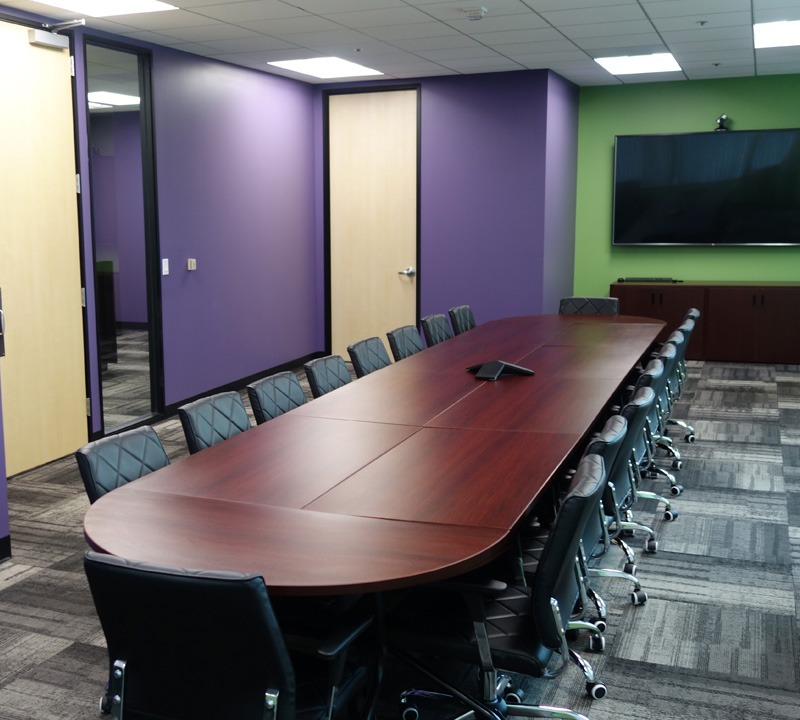The Ultimate Guide to Designing the Perfect Conference Room for Attorneys
Table of Contents
Introduction
Depositions play a crucial role in the legal process, allowing attorneys to gather valuable information, evaluate witnesses, and build a strong case. To ensure the effectiveness of depositions, it’s important for attorneys to utilize the right resources and create an environment that fosters clear communication and focused discussions. One such resource that can significantly enhance deposition strategies is a well-equipped conference room. In this article, we will explore the benefits of using conference rooms for depositions and provide insights on how attorneys can leverage this powerful tool to maximize their effectiveness.
Understanding the Importance of Depositions

Depositions are sworn testimonies given by witnesses outside of the courtroom, typically in a legal office or other designated space. They serve as opportunities for attorneys to gather information, assess the credibility of witnesses, and identify key evidence. Depositions are critical for building a strong case and formulating effective legal strategies. A well-conducted deposition can uncover valuable insights, shape the direction of the case, and potentially lead to favorable outcomes for clients.
The Role of Conference Rooms in Depositions
Conference rooms offer an ideal setting for conducting depositions. These dedicated spaces provide a professional atmosphere that promotes focused discussions and ensures privacy and confidentiality. By utilizing conference rooms, attorneys can create an environment that facilitates effective communication between all parties involved in the deposition process.
Advantages of Using Conference Rooms for Depositions
Privacy and Confidentiality
Conference rooms offer a controlled and secure environment, safeguarding the confidentiality of sensitive information discussed during depositions. The walls are soundproof, preventing outside distractions and ensuring that only authorized individuals have access to the proceedings. This privacy creates a safe space for witnesses to provide honest and uninhibited testimony.
Professional Environment
Depositions conducted in conference rooms convey a level of professionalism and seriousness that enhances the credibility of the proceedings. The furniture, decor, and overall ambiance of a conference room create a professional atmosphere that fosters respect and cooperation among all parties involved. This setting helps attorneys present themselves as competent and confident advocates for their clients.
Audio and Visual Equipment
Conference rooms are equipped with advanced audio and visual technology that ensures clear communication and accurate documentation of the proceedings. High-quality microphones and cameras capture every word and gesture, allowing attorneys to review the testimony later for analysis and preparation. These recordings serve as valuable resources for trial preparation, aiding in the development of effective cross-examinations.
Comfort and Convenience
Depositions can be lengthy and mentally draining. Conference rooms provide comfortable seating arrangements, adequate lighting, and temperature control, ensuring the comfort of all participants. The availability of amenities such as refreshments and restrooms in close proximity adds to the convenience and overall positive experience of conducting depositions.
Setting Up a Deposition Conference Room
When setting up a deposition conference room, several key factors should be considered:
Location and Space Requirements
Choose a location that is easily accessible to all parties involved. The space should be large enough to accommodate the required number of participants comfortably. Consider proximity to amenities such as parking, public transportation, and nearby facilities for breaks.
Furniture and Equipment
Invest in comfortable and ergonomic furniture that promotes good posture and reduces fatigue. Equip the room with a large conference table, chairs, whiteboards, and screens for presentations. Ensure that all equipment is in good working condition before the deposition begins.
Lighting and Acoustics
Good lighting is essential for visibility and recording purposes. Optimize natural light sources and supplement them with appropriate artificial lighting. Acoustic treatments such as sound-absorbing panels or carpeting can help minimize echoes and outside noise interference, ensuring clear audio recordings.
Technology and Connectivity
Make sure the conference room is equipped with reliable internet connectivity, audio-visual equipment, and video conferencing capabilities if needed. Test the technology beforehand to avoid any technical glitches during the deposition. Additionally, consider providing Wi-Fi access to all participants for seamless collaboration and information sharing.
Best Practices for Conducting Depositions in Conference Rooms
To maximize the effectiveness of depositions in conference rooms, attorneys should follow these best practices:
Preparation and Organization
Thoroughly prepare for the deposition by reviewing case materials, formulating questions, and anticipating potential challenges. Organize exhibits, documents, and visual aids in a logical and easily accessible manner to facilitate smooth transitions during the proceedings.
Utilizing Visual Aids
Visual aids such as charts, diagrams, and photographs can significantly enhance witness testimony and help jurors understand complex information. Utilize technology available in the conference room to display and annotate visual aids effectively.
Managing Witnesses and Attorneys
Maintain control and professionalism throughout the deposition by ensuring witnesses answer questions directly and attorneys refrain from inappropriate behavior or interruptions. Encourage clear and concise responses from witnesses, guiding them to stay focused and on-topic.
Recording and Transcription
Take advantage of the audio and visual recording capabilities of the conference room. Record the deposition for later review and transcription. These recordings serve as valuable references and can uncover missed details during the initial proceedings.
Overcoming Challenges in Deposition Conference Rooms
While conference rooms offer numerous advantages, certain challenges can arise during depositions. Here are a few approaches to surmounting these challenges:
Interruptions and Distractions
Minimize interruptions and distractions by setting ground rules at the beginning of the deposition. Encourage all participants to turn off their cell phones or put them on silent mode. Additionally, designate specific breaks for refreshments or restroom visits to minimize disruptions.
Technical Glitches
Ensure that all audio-visual equipment is in working order before the deposition. Have technical support available to address any unexpected glitches promptly. Consider having backup equipment on hand to prevent delays and maintain the flow of the deposition.
Ensuring Accessibility and Inclusivity
Ensure that the conference room is accessible to individuals with disabilities. Accommodate any special needs or requirements of participants to create an inclusive environment. This may include providing sign language interpreters, accessible seating, or materials in alternative formats.
Enhancing Deposition Strategies with Technology
Real-Time Transcription and Translation
Utilize real-time transcription services that convert spoken words into written text instantaneously. This allows attorneys to review and search through the deposition transcript in real-time, aiding in effective cross-examinations. In cases involving non-English-speaking witnesses, translation services can ensure accurate communication and understanding.
Remote Depositions
Leverage technology to conduct remote depositions when necessary. Video conferencing tools enable attorneys to depose witnesses who are unable to physically attend the deposition, saving time and travel expenses. Ensure secure and reliable connections to maintain confidentiality.
Document Management and Collaboration Tools
Utilize document management and collaboration tools to streamline the sharing and organization of case-related documents. Cloud-based platforms allow attorneys to access and collaborate on deposition materials from anywhere, promoting efficient teamwork and preparation.
Conclusion
Conference rooms serve as invaluable resources for attorneys seeking to supercharge their deposition strategies. With their privacy, professionalism, advanced technology, and comfort, conference rooms provide an optimal environment for conducting depositions. By following best practices, overcoming challenges, and embracing technology, attorneys can leverage conference rooms to gather crucial information, build compelling cases, and ultimately achieve favorable outcomes for their clients.
FAQs
No, conference rooms are not mandatory for depositions, but they offer significant advantages in terms of privacy, professionalism, and technological capabilities.
Yes, conference rooms equipped with video conferencing technology allow attorneys to conduct remote depositions effectively, saving time and travel expenses.
Conference rooms are designed to provide a secure and private environment. Soundproof walls, controlled access, and strict policies ensure the confidentiality of sensitive information discussed during depositions.
Yes, conference room recordings can be used as evidence in court. They serve as valuable resources for trial preparation, cross-examinations, and presenting key testimony.
Ensure that the conference room is accessible and accommodating for individuals with disabilities. Provide appropriate seating, sign language interpreters, and alternative formats for materials to ensure inclusivity.
As deposition is an activity in the legal system that requires all parties, i.e., lawyers, person to be deposed, and court reporters to meet at one place outside the courthouse, there must be an appropriate arrangement of place.
See More…







